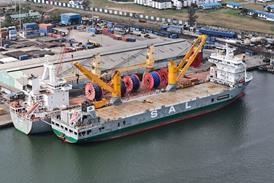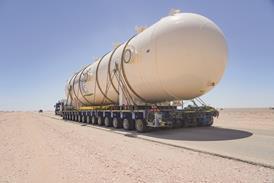March 4 - Following an eight percent decline in overall cargo volumes in 2013 through the port of Brake, the port's operator called for the River Weser to be improved to help improve its operational competitiveness.
Pointing to infrastructural bottlenecks in Brazilian ports, the economic slowdown in the steel sector and weak demand for paper as being behind the fall in volumes, J. Müller Group said that nevertheless strategic investments in new storage capacity, the optimisation of internal processes and increased sales activities will help encourage further growth in the coming years.
Jan Müller, CEO of J Müller AG explained that whilst the port's volume of 5.7 million tonnes in 2013 did not improve on the very good figures for 2012, they are still 6 percent above the result for 2011 and still higher than pre-crisis levels.
In the breakbulk sector in 2013, Brake saw a decline of 7.6 percent in volumes compared to 2012; but 10 percent higher than in the year 2011. Whilst iron and steel volumes almost doubled in 2012 compared to 2011, they suffered in 2013 as the steel industry contracted.
However, for 2014, the J. Müller Breakbulk Terminal is optimistic about iron and steel volumes and expects to continue to handle significant numbers of wind turbines.
"With about 2,400 major wind turbine components handled in the past year in Brake, we were able to achieve a leading position among German seaports ," said the managing director of J. Müller Breakbulk Terminal, Hartmut Wolberg, adding that the logistics facilities near the new terminal Niedersachsen Quay where the company built a new 8,000 sq m warehouse in Autumn 2013 were ideal for handling wind energy components.
Müller concluded that in regards to the dredging of the Outer and Lower Weser, Brake is hoping for a timely resolution of the planning approval process, as called for by the Federal Administrative Court stating: "The dredging of the Lower Weser strengthens all of our product areas as it will allow access for larger seagoing vessels."

The port of Brake
















